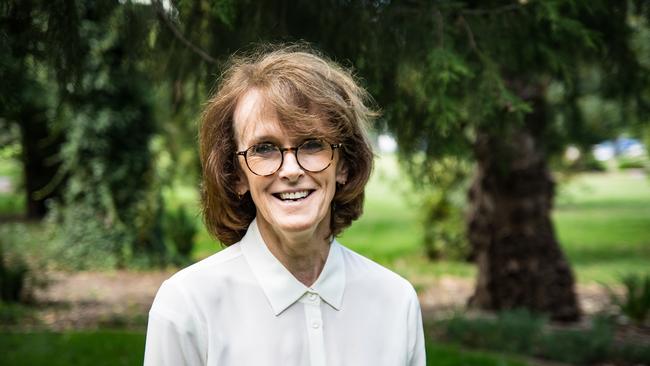Chief Scientist calls on schools to improve science studies
“It’s a worry to me.’’ Australia’s Chief Scientist has raised concerns about the teaching of maths and science in schools.

Australia’s Chief Scientist has blown the whistle on schools’ sliding maths and science results, saying they jeopardise the nation’s hi-tech success.
Cathy Foley said it was “important for Australia’s future’’ that the maths and science curriculum kept up with new discoveries and raised concern about “declining interest in science and maths subjects at school – and declining performance’’.
“Falling participation in higher maths and physics, especially, is a worry to me,’’ she said. “We need to understand why this is happening, and work to turn it around so that Australia remains a science and research powerhouse’’.
Dr Foley made her comments after The Weekend Australian’s revelation of flaws in the national science curriculum for schools.
Education consultant Ben Jensen, of Learning First, spent a year comparing Australia’s “narrow and shallow’’ science curriculum to those of England, the US, Hong Kong, Japan, Singapore and the Canadian provinces of Quebec and Alberta.
He found Australia’s curriculum contains about half the science content of the average of other countries’ curriculums over the first nine years of schooling.
“It is lacking content, has poor sequencing, and a lack of breadth and depth,’’ Dr Jensen concluded.
Dr Foley, a decorated physicist, said while she was not a curriculum expert, she felt it must be “responsive to new discovery’’.
“Science is a dynamic field, especially in today’s fast pace of advancement in technology,’’ she said. “Curriculums also need to balance specific content with developing critical thinking and problem-solving skills. This is important for Australia’s future.’’

Dr Foley said Australia would miss its ambitious targets to build advanced manufacturing, or even to fill existing skills shortages, unless more school students studied science, technology, engineering and maths (STEM) subjects through to year 12.
“A strong, deep grounding in science is crucial, starting in the very early years when kids are primed to ask questions,’’ she said.
“Australia can’t hope to meet its ambitious deep-tech agenda or fill its skills needs without a substantial increase in the number of young people studying science.
“We want to build advanced manufacturing in Australia.
“The net-zero target (for greenhouse gas emissions) means transforming our energy system and deploying new technologies in everything from how we power homes to transport and industry.
“We want to ensure we stay at the forefront of quantum technologies, which are the basis of the next digital revolution.’’
The falling performance of Australian students is evident in the OECD’s Program for International Student Assessment (PISA), which tests the performance of 15-year-old students across the industrialised world.
Between 2003 and 2018, Australia’s average PISA score in mathematics declined by the equivalent of at least a year of schooling. The science literacy of Australian students in 2018 was nearly one year behind those students tested in 2006. The proportion of year 12 students studying intermediate or high-level maths plunged from 35 per cent in 2008 to 27 per cent in 2020.
A federal government report shows that university students are three times more likely to enrol in a management or commerce degree than an engineering or information technology degree.
This year’s Australian Jobs and Skills report, to be published on Wednesday, shows that only 140,000 university students were studying a science degree, with another 113,000 studying engineering, in 2022. The most popular university degree is management and commerce, with 353,000 students in 2022, compared to 116,000 studying IT.
Demand for degrees in commerce reflect strong jobs growth, with the number of human resource managers soaring 86 per cent over the past five years.
Employment of corporate services managers jumped 54 per cent; management and organisation analyst jobs grew 57 per cent; civil engineer jobs were up 44 per cent and jobs for IT systems analysts rose 63 per cent.




To join the conversation, please log in. Don't have an account? Register
Join the conversation, you are commenting as Logout